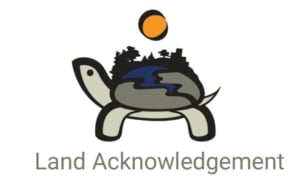I’ve spent some time with the Mohawk nation of Canada, teaching them storytelling, and over the years, I’ve worked with people of indigenous origins many times, but otherwise, I don’t have any friends or current colleagues who descend from indigenous people.
At least as far as I know.
So I find myself wondering:
How do indigenous people feel about land acknowledgments?
I’ve met at least two storytellers who directly descend from indigenous people, and in both cases, they have told me that they prefer the word “Indian” to “Native American” or “indigenous people,” so it’s hard to know what to say sometimes and what is preferred.
In terms of these land acknowledgments, I have a couple of thoughts:
First, I have yet to make a land acknowledgment at any of the shows that I produce. I can’t help but feel like doing so would make me a hypocrite since I’m not doing anything to correct or mitigate the injustice that I am publicly acknowledging.
Essentially, I’d be saying, “I acknowledge that this land was probably stolen – through force, coercion, or deception – from the indigenous people who once lived here. And with that, let’s start the show!”
This feels wrong to me, but maybe I’m wrong. Maybe land acknowledgments are appreciated and beloved by the indigenous communities. But unless I’m taking some kind of action to right the wrong or support the victims of this injustice, a land acknowledgment feels like a meaningless attempt at placation.
Or worse, in some cases, an attempt to look good in front of others.
I also can’t stand when a performer takes the stage and makes their own land acknowledgment prior to their performance. Not only does it seem to malign the producer or host who failed to make the acknowledgment at the top of the show, but it also strikes me as self-aggrandizing.
A performative, almost peacocking demonstration of their cultural sensitivity.
Again, I could be wrong about all of this, and if you have indigenous roots, I’d love to hear from you.
Confirm my instincts. Set me straight. Either would be great.








